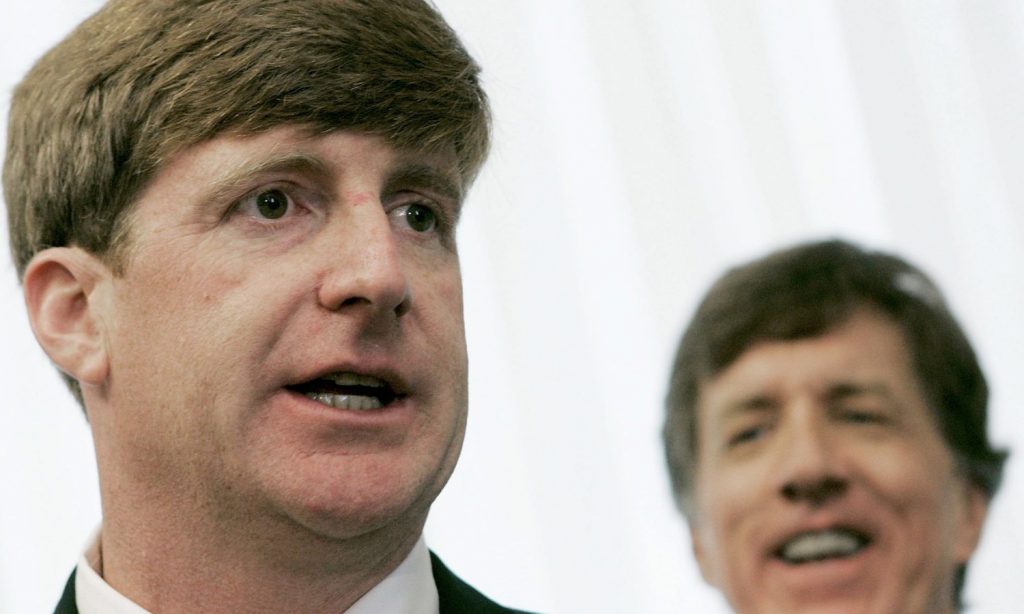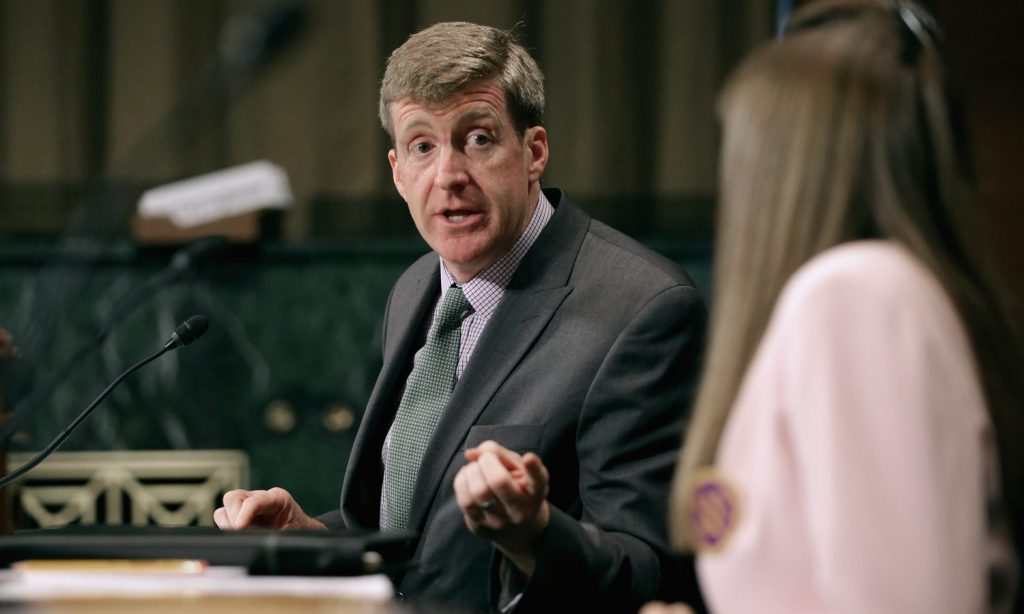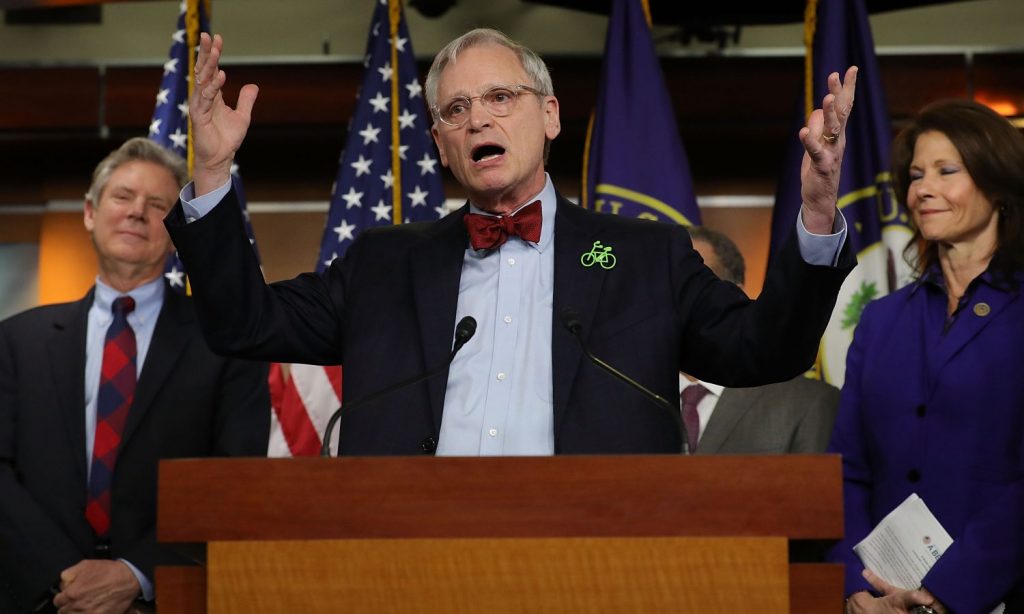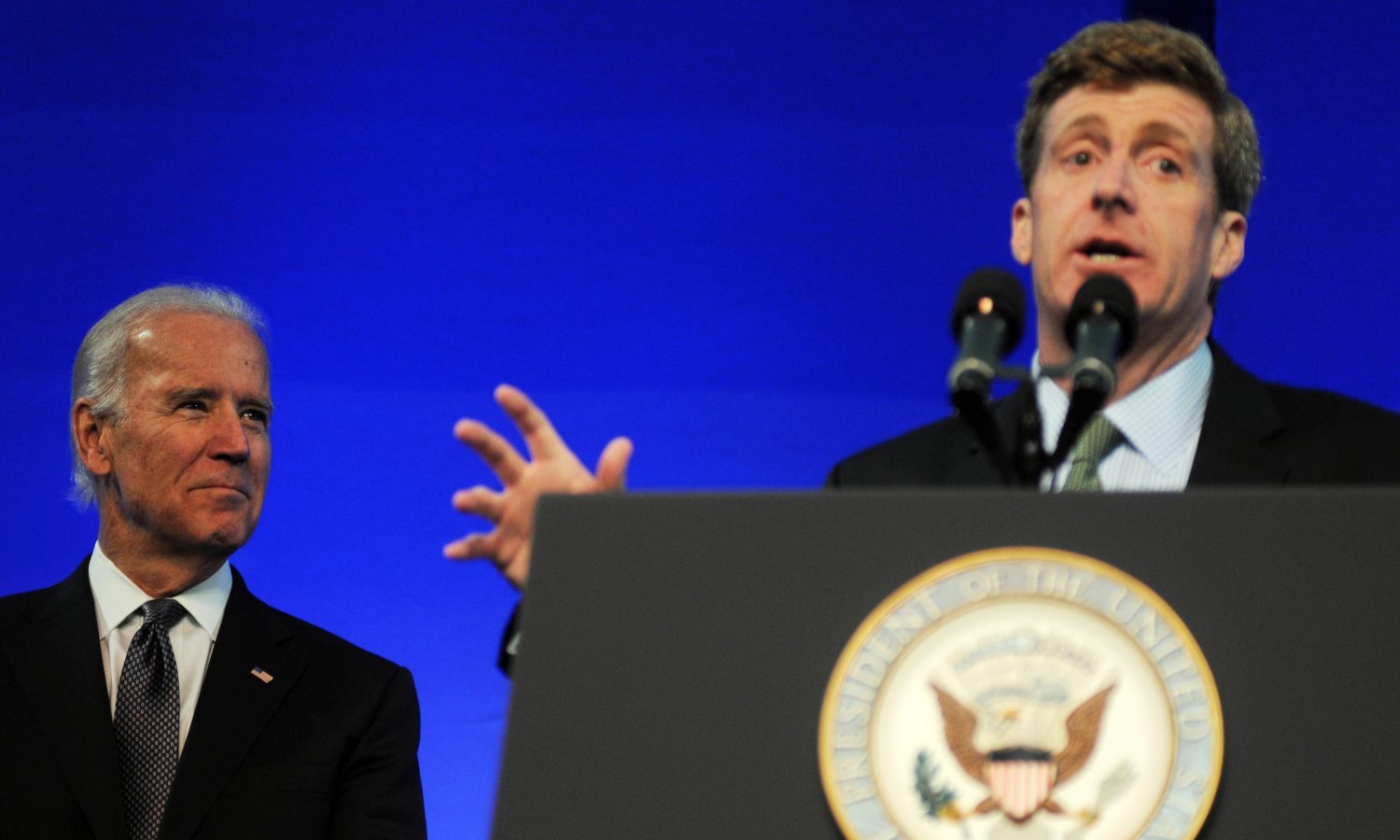Patrick Kennedy is the cofounder of Smart Approaches to Marijuana (SAM), a well-known adversary of cannabis reform.
A quick read of his bio reveals that Ted’s youngest boy, Patrick Kennedy, might be a good choice for a leading role in developing drug policy that a new administration needs. But there’s a piece of that policy that looks to be especially problematic for Kennedy — the piece dealing with cannabis.
It’s this part of drug policy that has all sorts of trap doors that the new administration doesn’t want to fall into. It regards the workings of an entirely new cash crop industry making billions of dollars growing and selling what is still an illegal drug.
They must choose their leading drug policy guy wisely.
Patrick Kennedy—this Democrat and former Congressman who served 16 years as the U.S. representative for Rhode Island; this guy who overcame his own demons battling alcohol and drug addiction which included cocaine and Oxycontin; this redeemed, remade man—should have a unique understanding of how bad some prescription drugs can be.
On paper, Kennedy looks like he’d be sympathetic to supporting cannabis because it’s a way out of drug addiction. It’s a way to achieve better mental health. His work both in and out of Congress demonstrates that he supports both of those things.
So it’s believable that the new president, Joe Biden, may be open to talk to Kennedy about a position as the head of the Office of National Drug Control Policy (ONDCP), and direct him to deliver policy about what the Biden administration will do with cannabis.
It’s a historic time to be that guy—the director of a top national office with a direct line to the president—working on an issue that a new administration has signaled it’s ready to resolve. There’s a lot riding on what this administration does with the cannabis question: Take it off the U.S. Drug Enforcement Administration (DEA) schedule and legalize all federally? Let states decide their own legalization terms? Or keep it on the DEA schedule, just lower, from its current placement in Schedule 1 (as bad as heroin), to Schedule 2, which would allow more science and research, and let the market work out the details?

There’s a more practical side, more urgent side, to the discussion as well. Cannabis could provide a welcome state revenue boost for any state struggling with economic recovery. Ask Colorado state budget officials (nearly $10 billion in cannabis sales since January, 2014) and Illinois state budget officials (over $1 billion in its first year of recreational cannabis sales).
Many stakeholders with deep pockets are weighing in about what they want to see this administration do with the cannabis industry, and Kennedy is lobbying hard for a look-see leadership role from Biden.
After all, he’s got the chops. He’s a Kennedy. A liberal Democrat. That’s almost enough right there.
But there’s more.
In his letter promoting his candidacy for the ONDCP director position sent two weeks after Biden was elected, Kennedy says he has excellent rapport with National Institutes of Health Directors. He calls Dr. Nora Volkow, the Director of the National Institute on Drug Abuse, “a dear friend and mentor for many years.”
RELATED: How Cannabis Friendly Is Biden’s New Administration? Part 1: Merrick Garland’s DOJ
In 2017, Kennedy served on the President’s Commission on Combating Drug Addiction and the Opioid Crisis, but complained that it “did nothing to advance drug policy.” Maybe he wants another shot.
But within a few short paragraphs of his bio — past all the accolades of his achievements, and the impressive list of bills he wrote or co-sponsored about treatment of neurological and psychiatric disorders, and the committees he was on as a Congressman — there is one fact about Patrick Kennedy that may take him out of contention for any drug policy position. And that fact is missing from the bio on his home page.
He is the co-founder of Smart Approaches to Marijuana (SAM), along with Kevin Sabet. SAM is a well-known adversary of cannabis reform.
SAM believes it can prove that there have been more traffic fatalities in Colorado after cannabis was legalized there in 2014. SAM has charts on its website that show a serious spike in calls to poison centers in Oregon, Washington and Colorado after cannabis was legalized there.

SAM says that the normalization of cannabis is making drug addicts out of people, which is really what the dispensaries are trying to do. SAM embraces the gateway drug theory.
SAM even makes a connection between the greater availability of cannabis and the rise of the opioid crisis, and alludes to policy changes: “We now have eight years of data to show how these marijuana policy changes—and the industry they created—affect families and communities…As we are only now beginning to address the far-reaching and devastating consequences of the addiction epidemic—driven largely, but not exclusively, by opioids—the rise of additional corporate promotion of drug use comes at an inopportune time.”
The National Organization for the Reform of Marijuana Laws (NORML) says that SAM “has consistently lobbied against virtually every state and federal reform bill to legalize marijuana for either adult-use or for medical use.”
So will SAM be the organization that a guy who wants to advise on drug policy, on cannabis policy, use as his playbook?
Could be.
Just after the launch of SAM in 2013, Kennedy told The Washington Post that marijuana “destroys the brain and expedites psychosis. It’s just an overall bad drug.”
The current thinking on the choice for drug czar is that Biden is leaning toward Kennedy. After all, it was Biden who was one of 87 Senators to vote on the creation of the ONDCP at the height of the war on drugs in 1988. And Biden is probably pondering the work of President Obama’s drug czar, Michael Botticelli, a director who fought his own battle on addiction for 28 years and has a background in public health.
RELATED: How Cannabis Friendly Is Biden’s New Administration? Part 2: Xavier Becerra’s DOH
In any case, the ONDCP is not a friend of cannabis. For example, the director of the ONDCP is required by statute to oppose “any study or contract relating to the legalization” of a Schedule 1 substance such as cannabis, and “take such actions as necessary to oppose any attempt to legalize the use of a substance (in any form).”
Maybe Kennedy has evolved his thinking since 2013. In his letter laying out why he should be considered for drug czar, Kennedy wanted Biden to know that he supports marijuana decriminalization, expanded research and expungement as priorities for this overall bad drug. That sounds…better.
But then he goes on to say in the letter something that resembles late 1990s thinking—that he recognizes the dangers of today’s higher potency consumption options, and equates that with addiction requiring treatment. “I have spent the last decade navigating policy solutions and special programming to tackle the crisis of addiction. I would welcome the opportunity to serve this Administration, the American people, and my fellows in recovery, as Director of the Office of National Drug Control Policy.”
NORML is having none of it. The organization has called for the elimination of the ONDCP, and rejecting Kennedy as he lobbies for the position as the director—or the new drug czar, a phrase that Biden actually coined.
In a petition posted on its website, NORML stated that, at a minimum, “the head of (ONDCP) must be someone whose views align with those of most Americans. Former Rep. Patrick Kennedy does not meet this criteria. In 2014, Kennedy said ‘Incarceration is a powerful motivator,’ in regard to his efforts to prevent the adult consumption of cannabis. There is no place in the Biden administration for policy leaders who cling to these outdated viewpoints.”
Then there is the actual legislative work that would involve Kennedy if selected as director.

Earl Blumenauer is the U.S. representative for Oregon who has been advocating for cannabis longer than any presently serving member. Any drug policy czar will likely be doing a lot of work with Blumenauer and the members of the Congressional Cannabis Caucus that Blumenauer created in 2017 to work on a “more rational approach to federal cannabis policy.”
Blumenauer watched the Marijuana Opportunity Reinvestment and Expungement Act (MORE Act)—Vice President Kamala Harris’ comprehensive legalization bill she introduced in 2019 that deschedules cannabis and provides social equities, among other things—pass the House in December, 2020. The Senate has signaled that they will now take it up.
It’s the most historic legislative achievement to date on the issue of descheduling and legalizing cannabis. And NORML is keeping the pressure up with reports of a survey showing 61% of Americans think legalizing cannabis is “a good idea.”
So one way or another, there’s going to be a new drug czar. A new reckoning about the fate of legalized cannabis will be his first order of business. A showdown in the offing. The burning question remains: Will Kennedy play ball? Or.. punt?


